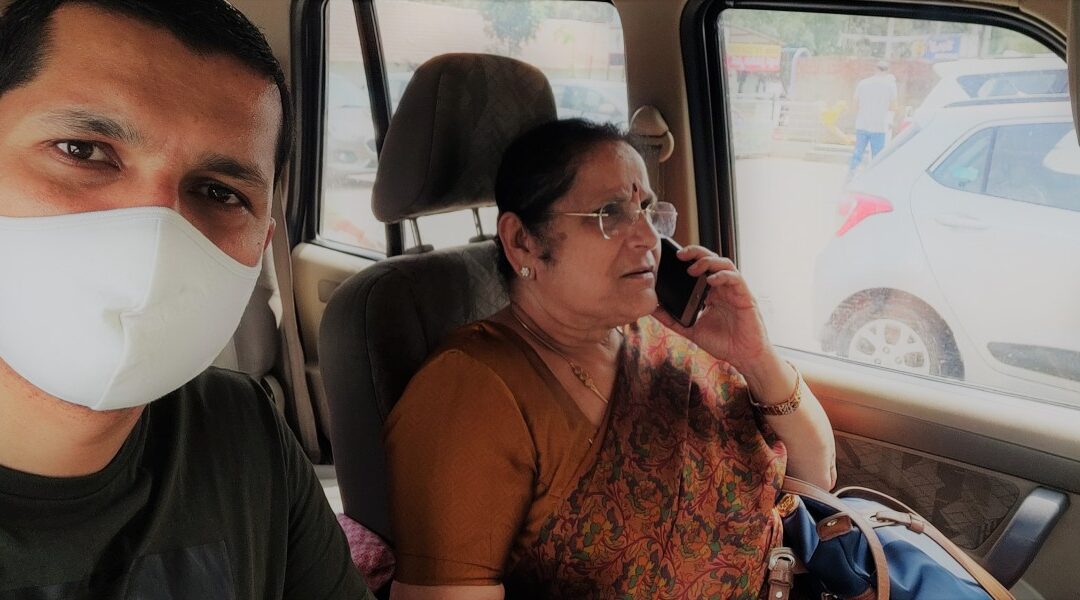Same money – different forms
Mother: Chinmay, we are almost done with shopping. Only I need to buy some medicine.
Me: which money do you want me to use this time?
Mother: what do you mean by which money?
Me: do you want me to use,
the money (change) that the vegetable vendor gave? Or
the money (change) the fruit vendor gave? Or
the money (change) the florist gave? Or
the money (change) the grocer gave? Or
the money (change) the baker gave?
(My mother was silent for a while as I was driving, after some time I asked her)
Me: hello… what are you thinking?
Mother: it is interesting to hear when you separate the money received by different people and how they can all now be used to buy medicine.
Me: yes, even I get fascinated when I think about the journey of money when it exchanges hands.
From a bank it might go to a business person – then it might go to an employee as salary – then that money might be used to purchase groceries – then the grocer might pay a farmer – that farmer might pay school fees for his/her child – then the school might use the same money to pay salary to the teacher – the teacher might give it to a temple – it just goes on and on and on.
(my mother was looking for something on her phone)
Me: what are you looking for?
Mother: I remember watching a video on WhatsApp sent by my friend about how money takes different forms.
Me: Do you remember who sent it?
Mother: hmm… no
Me: Do you know who was on the video?
Mother: it was by a Guru from ISKCON.
Me: hmm… if it is ISKCON, then it must be either Radhanath Swami or Gaur Gopal Das.
Mother: I do not remember the name but I am sure the guru was from ISKCON and the guru was not that old.
Me: ok, let us search for the video on YouTube. Open the YouTube app on your mobile.
Mother: where is it?
Me: hmm… swipe the screen
Mother: this way?
Me: no, the other way.
Mother: now?
Me: again, swipe
Mother: now?
Me: yes, tap on this app and type ‘Gaur Gopal Das money’
Mother: ok done, see if I have typed it correctly?
Me: yes, tap this search symbol.
Mother: ok, there are so many videos. Which one?
Me: play the first one and see if it is the video you were referring to?
(My mother played the video and after 30 secs)
Me: yes, this is the one. I want you to listen to this…
In the video Gaur Gopal Das says,
“If money is given to a temple, church or charity it is known as a donation;
If it is given to a school, it is called a fee;
In a marriage, it is dowry;
In a divorce, it is alimony;
When you owe money to someone, it is called a debt;
When you pay it to the government, it is called a tax;
In a court, it is fine;
If you receive it regularly after retirement, it is called a pension;
When an employer gives it to a worker it is called a salary;
When a master gives it to a servant it is called a wage;
When parents give it to their child it is an allowance;
When you borrow it from a bank, it is a loan;
When you offer it after a good service it is called a tip;
When paid to a kidnapper, it is called a ransom;
When illegally received in the name of a service, it is called a bribe;
And when it is used to share and serve others, it is called happiness.
There is nothing wrong in possessing money, the problem is when money possesses you.”
The above content was extracted from Gaur Gopal Das YouTube channel: https://www.youtube.com/watch?v=SwmfUK4O-Cs
This reminded me of a conversation I had back in 2006 with my mentor Aporesh Acharya.
I had got my first salary as an employee and I wanted to take Aporesh for dinner. During our conversation, he said, “Son, make sure you start giving 10% of your earnings to charity. After few years, make it 20% then 30%, and so on.
When you are 60+ years you should have reached a stage where 90% of your earnings go to charity and with the remaining 10% you should still be able to live your life KING-SIZE. However, do not compromise on your lifestyle – have the best of the best things but make sure you do not get trapped by them. This way not only will you grow professionally to touch your excellence but also will grow in all dimensions of your life.”
And finally, he said, “You cannot give water to someone if you do have water in your own jug.”
………………………………………………………………………………….
For all of us who might be earning part-time or full-time or through business, what form is the money taking when i.e when ‘money goes out’?
I am no one to tell what you should be doing with your money but would love to know your views and have a conversation about it.
Remember, happy people, make money 🙂
#money #cash #currency #happiness #numbers #financemanagement #bottomline #financeacademy

